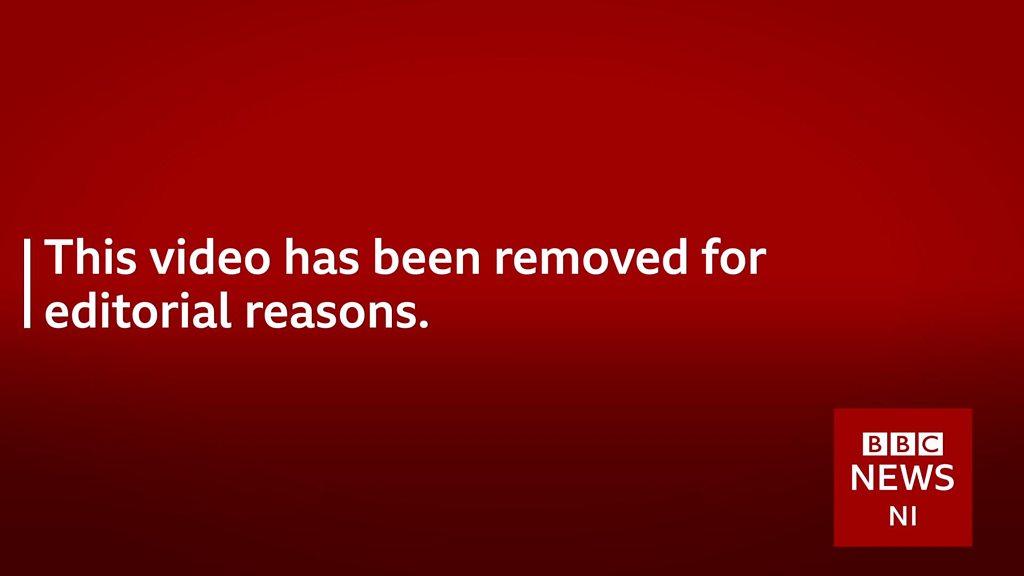Supreme court to rule on Northern Ireland abortion law
- Published

The case has been brought by the Northern Ireland Human Rights Commission
The Supreme Court is to rule on whether Northern Ireland's abortion laws are incompatible with human rights legislation.
The UK's highest court will announce its decision on Thursday.
Unlike other parts of the UK, the 1967 Abortion Act does not extend to NI.
Currently, a termination is only permitted if a woman's life is at risk or if there is a risk of permanent and serious damage to her mental or physical health.
The challenge was brought by the Northern Ireland Human Rights Commission (NIHRC).
The court will decide whether the current law breaches legislation by banning abortion in cases of rape, incest or fatal foetal abnormality.
A fatal foetal abnormality diagnosis means doctors believe an unborn child has a terminal condition and will die in the womb or shortly after birth.
The law on abortion in Northern Ireland explained
However, anti-abortion campaigners argue that doctors cannot accurately predict death, saying that terminally-ill babies "can and do defy the odds".
The High Court in Belfast ruled in 2015 the current law was incompatible with human rights law.
Three of Northern Ireland's most senior judges overturned that decision in June last year, saying it was a question for the elected assembly, not the courts.
In 2017 The Supreme Court rejected an appeal by a mother and daughter in their legal battle for women from Northern Ireland to receive free abortions on the NHS in England.
In October it considered the NIHRC challenge claiming that Northern Ireland law is incompatible with international human rights.
The NIHRC argued that the current law subjects women to "inhuman and degrading" treatment, causing "physical and mental torture," in violation of the European Convention on Human Rights (ECHR).
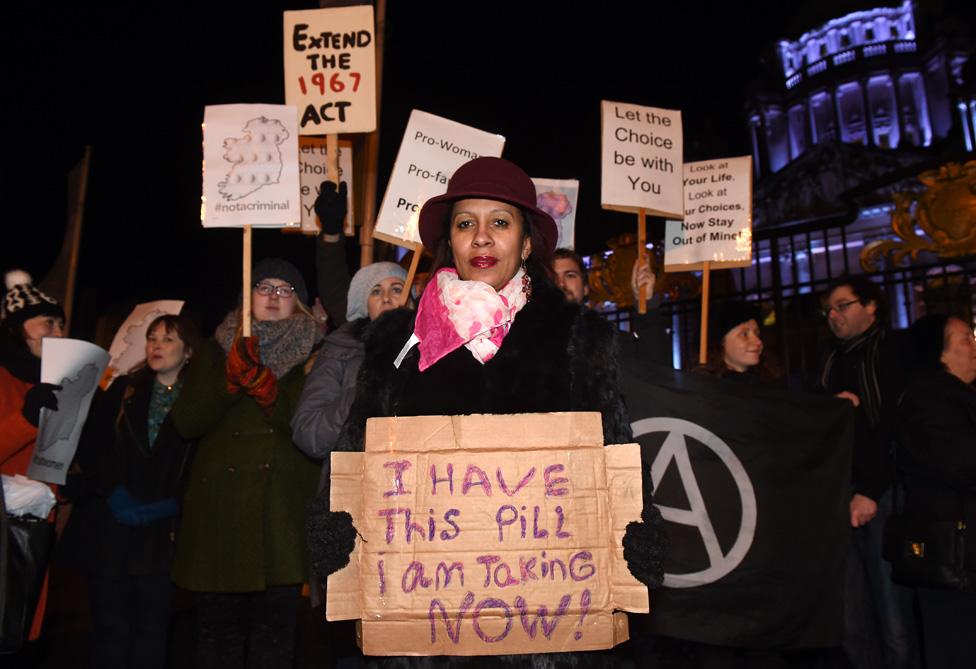
If the court rules in favour of the NIHRC, responsibility may fall on Westminster to change the law.
Northern Ireland has been without an executive since January 2017, when the governing parties - the Democratic Unionist Party and Sinn Féin - split in a bitter row over a flawed green energy scheme.

Timeline of NI abortion law challenges
30 November 2015: A High Court judge in Northern Ireland rules Northern Ireland's law breached the European Convention on Human Rights in cases of fatal foetal abnormality or sexual crime
11 February 2016: Members of the Northern Ireland Assembly vote against legalising abortion in cases of fatal foetal abnormality (by 59 votes to 40) and cases of sexual crime (by 64 votes to 30)
14 June 2017: Supreme Court rejects an appeal by an anonymous mother and daughter that NI women should be able to access free NHS abortions in England.
29 June 2017: Northern Ireland's Department of Justice (DoJ) and Attorney General successfully appeal against 2015 High Court human rights ruling, prompting the NIHRC to go to the Supreme Court
29 June 2017: The government announces women from Northern Ireland will be entitled to free NHS abortions in England, after a Labour-led campaign
25 October 2017: Supreme Court considers appeal that argues Northern Ireland law is incompatible with international human rights

Opposition Labour leader Jeremy Corbyn warned DUP leader Arlene Foster that, in the absence of a functioning assembly, "clearly the UK parliament has a responsibility to adhere to human rights standards".
The Prime Minister Theresa May has said Northern Ireland's assembly should deal with the issue, but a ruling against its abortion laws could lead to a "declaration of incompatibility" with UK legislation.
"We recognise there are strongly held views on all sides of the debate in Northern Ireland and that's why our focus is on restoring that democratically accountable devolved government," Mrs May's spokesman said.
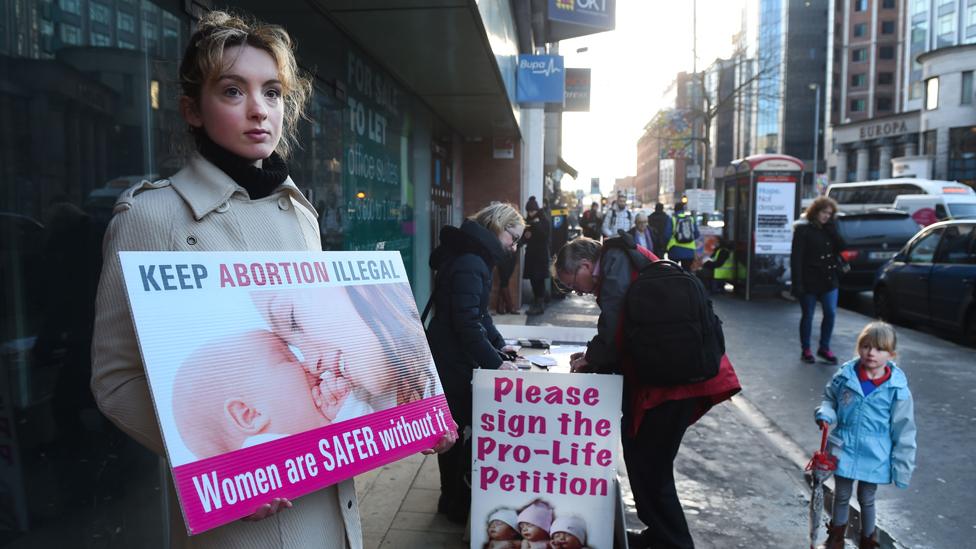
An anti-abortion activist in Belfast in 2016
"We consider this to be a devolved matter.
In May, the Republic of Ireland voted decisively in a referendum to reform the country's strict abortion laws, which had effectively banned all terminations.
The referendum reignited a debate about Northern Ireland's law, with some calling for reform while others, including the biggest party, the DUP, remain opposed to changing the law.
- Published28 May 2018
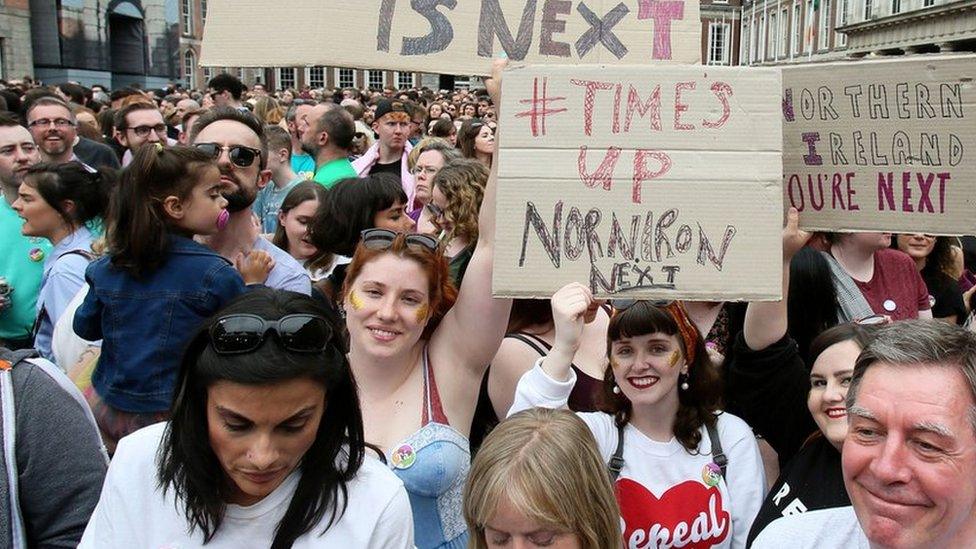
- Published25 October 2017
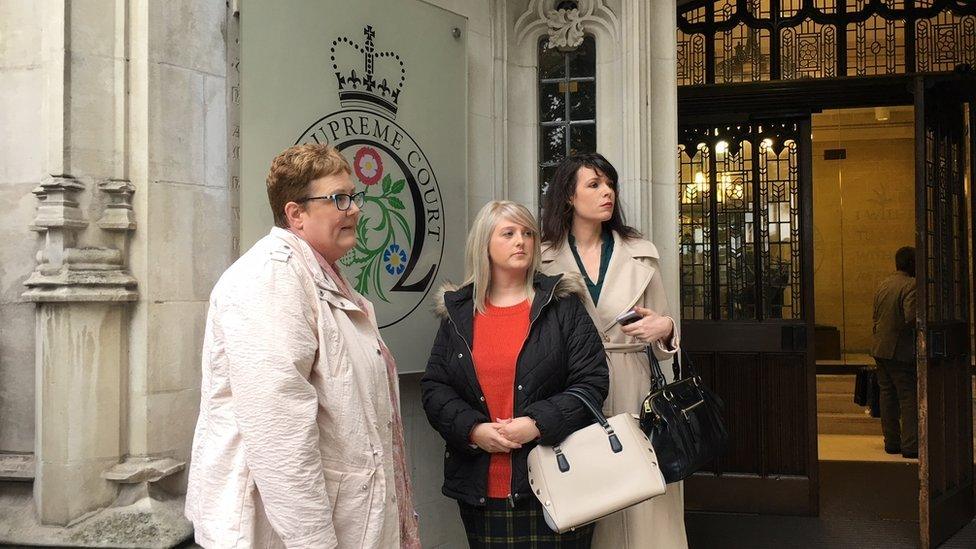
- Published23 February 2018

- Published6 June 2018
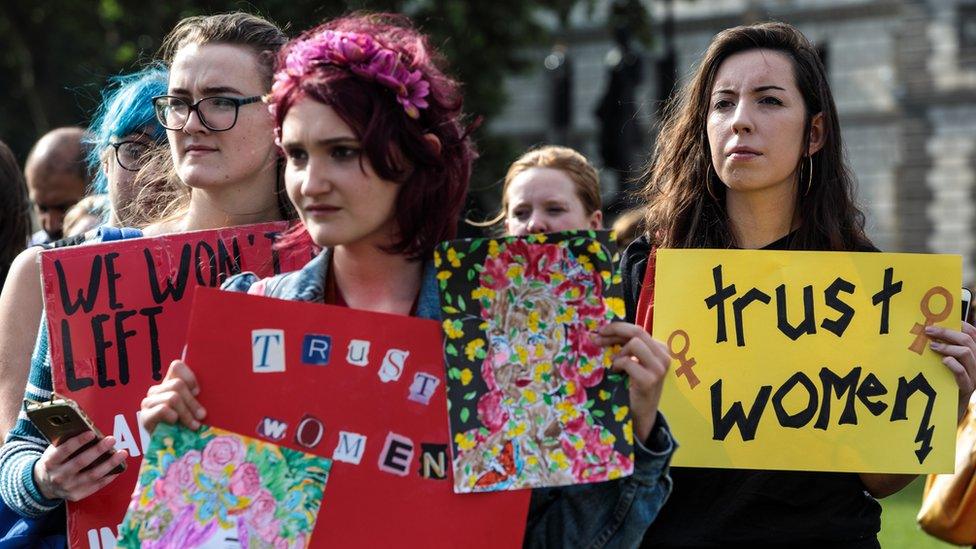
- Published7 June 2018
